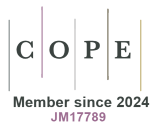Most read articles by the same author(s)
- Mario Boccadoro, Patrizia Berto, Sara Bringhen, Elena Zamagni, Patrizia Tosi, Nicola Cascavilla, Nicola Giuliani, Donato Mannina, Renato Zambello, Francesca Patriarca, Vittorio Montefusco, Mariella Grasso, Francesco Di Raimondo, Massimo Offidani, Maria Teresa Petrucci, Pellegrino Musto, Place in therapy of innovative drugs in multiple myeloma in 2021 and 2023 according to an expert panel Delphi consensus , Global and Regional Health Technology Assessment: Vol. 8 No. 1 (2021): January-December 2021
- Andrea Aiello, Maria Elisa Mancuso, Alessio Colombo, Cristina Teruzzi, Patrizia Berto, Budget impact analysis of extended half-life recombinant factor IX (rFIXFc) in the treatment of haemophilia B , Global and Regional Health Technology Assessment: Vol. 7 No. 1 (2020): January-December 2020
- Sanja Stanisic, Americo Cicchetti, Camillo Porta, Giuseppe Procopio, Patrizia Berto, Cost-effectiveness of cabozantinib in second-line treatment of metastatic renal cell cancer (mRCC) in Italy , Global and Regional Health Technology Assessment: Vol. 5 No. 1 (2018): January-December 2018
- Alessandro Tedesco, Marzia Bonfanti, PhD, Asia Barugolo, Fulvio Luccini, Patrizia Berto, Time to market evaluation for new chemical entities in Italy: a critical analysis of the period 2018-2024 , Global and Regional Health Technology Assessment: Vol. 12 No. 1 (2025): January-December 2025
- Sanja Stanisic, Alessia Marocco, Anna Gallo, Paolo Rama, Marta Sacchetti, Maurizio Rolando, Augusto Pocobelli, Roberto Ceccuzzi, Andrea Leonardi, Rita Mencucci, Emilio Pedrotti, Elisa Postorino, Maurizio Mascia, Lucia R Mazzamuto, Luisanna Prisco, Floortje Van Nooten, Patrizia Berto, Epidemiology and economic impact of moderate and severe neurotrophic keratopathy in Italy , Global and Regional Health Technology Assessment: Vol. 5 No. 1 (2018): January-December 2018
- Patrizia Berto, Silvano Adami, Costantino Botsios, Valentina Fantelli, Anna Maria Grion, Francesca Ometto, Leonardo Punzi, Chiara Roni, Giovanna Scroccaro, Real World Data use and Applications in the Integrated Management of Rheumatic Disease , Global and Regional Health Technology Assessment: Vol. 2 No. 3 (2015): September-December 2015
- Edoardo Mannucci, Enrico Torre, Patrizia Berto, Dapagliflozin as add-on to Metformin; Network Meta-Analysis and Budget Impact Analysis , Global and Regional Health Technology Assessment: Vol. 2 No. 3 (2015): September-December 2015
- Alessia Marocco, Sanja Stanisic, Francesca Fanelli, Francesco Damele, Furio Colivicchi, Alirocumab in the management of primary hypercholesterolaemia or mixed dyslipidaemia: A budget impact analysis – Italian perspective , Global and Regional Health Technology Assessment: Vol. 5 No. 1 (2018): January-December 2018
- Patrizia Berto, Claudio Bilato, Enzo Bonora, Umberto De Conto, Maria Stella Graziani, Paolo Pauletto, Roberto Vettor, Alberto Zambon, Cardiovascular risk and increased plasma LDL cholesterol concentration: the role of the Regional Health Service , Global and Regional Health Technology Assessment: Vol. 4 No. 1 (2017): January-December 2017









